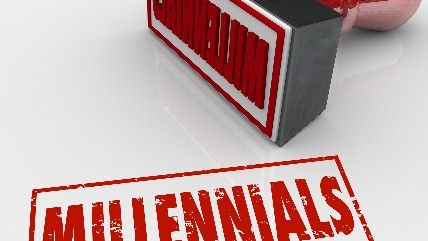Millennials Hurt By Occupational Licensing Laws
Young people entering the workforce without a degree or a "rent-seeking" license face low wages, if they can even find a job.

Millennials seeking to enter the workforce without

a college degree or some form of occupational license are more likely to be unemployed or paid 13 percent less than their better-credentialed contemporaries.
Analyzing a recent report from the Bureau of Labor Statistics which includes a "trove" of previously unexamined data, FiveThirtyEight's Ben Casselman writes that "Close to a quarter of workers, 22.4 percent, have a government-issued license, and 25.5 percent have either a license or a privately issued certification." Women without a license or degree are hit particularly hard, with nearly two-thirds earning fewer than $540 per week.
Casselman also notes that the State of New York has 130 different occupations requiring licenses listed on its labor website, and that a 2015 report from the White House on occupational licensing "found that occupational licensing requirements have quintupled over the past 60 years."
Reason contributor J.D. Tuccille recently wrote about the increasing bipartisan distaste for the "maze of bureaucracy" which benefits established business interests and politically-connected cartels at the expense of the greater economy.
Readers of Reason know we often cover the pernicious effects of occupational licensing on people's ability to move from state to state or start new businesses, to say nothing of the punitively high fees involved with getting licensed, but in an article this past February, Casselman eloquently defined the term "rent-seeking" as it relates to licensing:
Defenders of occupational licensing typically argue that the rules help protect consumers and workers, and that's undoubtedly true in some cases. I want the people filling my cavities to know what they're doing. But it's hard not to suspect that in many cases, these rules serve another purpose: to make it harder for new competitors to enter the marketplace. In Nevada, according to Politico, barbers need more than two years of training to qualify for a license; that's a high bar to anyone looking to break into the business.
Economists call this kind of behavior "rent-seeking," which is another way of saying "gaming the system to make more money than you've earned." (A company that wins a no-bid contract through political connections is a rent-seeker. So is a CEO who gets a raise by stacking the board of directors with friends.) Occupational licenses are good for existing businesses, which face less competition, and for workers who already have licenses, who according to one study earn roughly 15 percent more than they would in a free market. But they're bad for everyone else. Research has found that occupational licenses inhibit entrepreneurship, especially among low-income workers. They also raise prices, lower productivity and limit workers' ability to change careers or cities. One recent study estimated that licensing laws cost the U.S. as many as 2.85 million jobs.
Given that young adults are the most adversely effected by the occupational licensing regime, you can't help but feel the millennials so in thrall with Bernie Sanders missed their opportunity to demand of the democratic socialist — who so often tries to buy their affections with promises of free stuff — that he evolve his unwavering faith in the force of government and just help them cut back on the red tape so they can get jobs.


Show Comments (10)